
How much does it cost to install a doorbell camera? It depends on whether you plan to DIY or hire a pro. Learn about different models and their power sources, too.
See through the smoke with these pros and cons


A local electrician can recommend the best smoke detectors for your home based on your budget and local building codes.
Battery-operated smoke detectors are budget-friendly, but you’ll need to test and replace the batteries regularly.
Hardwired smoke detectors don’t require batteries, but you’ll have to hire a pro to install them.
Dual-sensor and smart smoke detectors are pricier but come with more advanced features.
If you aren’t sure which types of smoke detectors are required in your area, ask your electrician or local fire department.
Smoke detectors are an essential part of home safety that alert you to the presence of smoke and potentially fire in your home. There are seven main types of smoke detectors for your home—photoelectric, ionization, dual sensor, combination smoke and carbon monoxide, battery-operated, hardwired, and smart—though some may fit into more than one category.
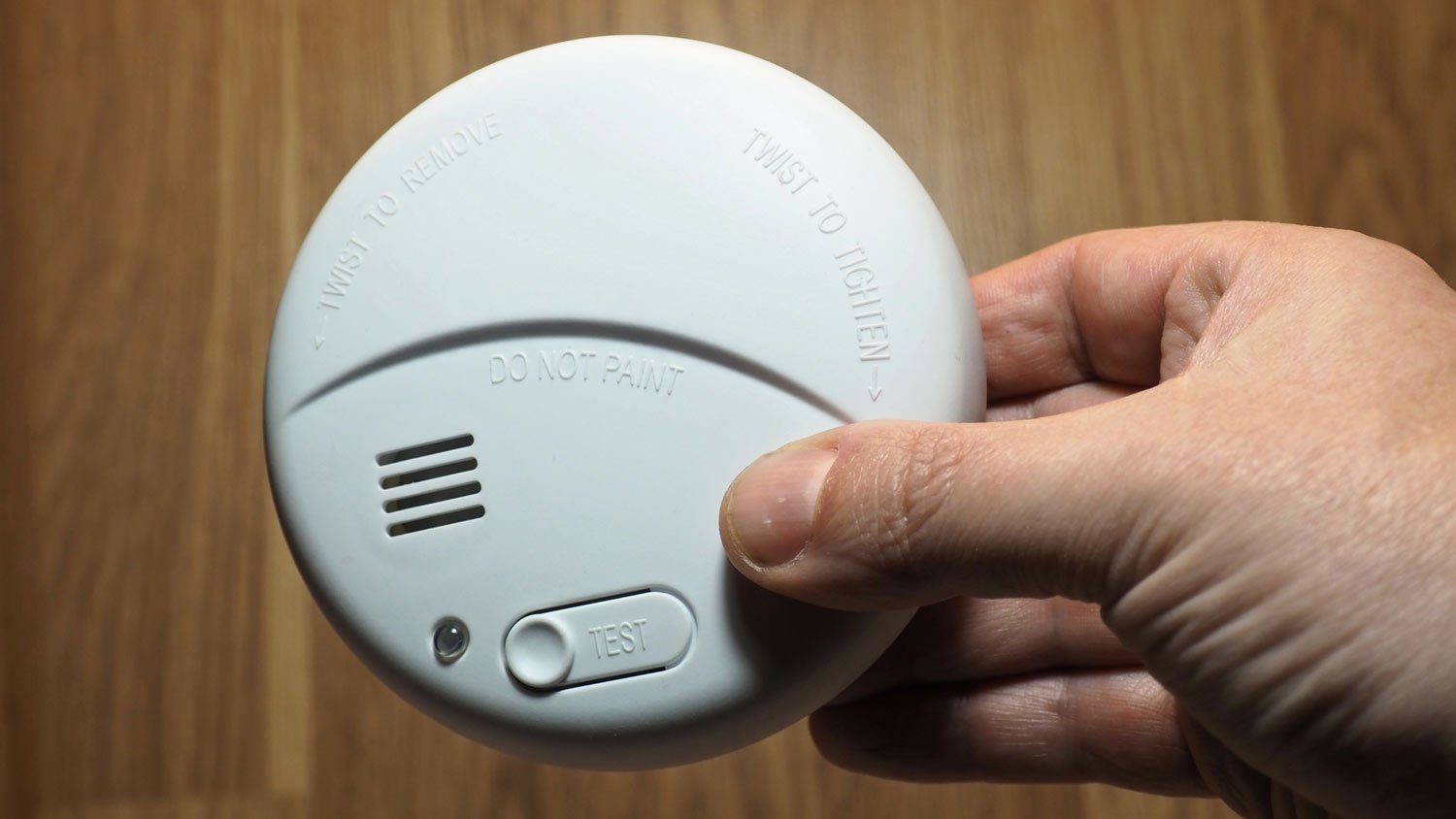
Photoelectric smoke detectors create a beam of light inside a sensing chamber, aimed away from a sensor. If smoke enters the chamber, it reflects the light onto the sensor, triggering the alarm. This type of smoke detector works best for sensing smoldering, flameless fires—whereas an ionization smoke detector may only sound once a fire has developed flames.
While photoelectric detectors cost a little more than ionization smoke detectors, they’re still affordable at around $20 per unit, whether they’re hardwired or battery-powered.
| Pros | Cons |
|---|---|
| Better at detecting smoldering fires | Isn’t as responsive to flaming fires |
| Less sensitive to cooking smoke | Slightly more expensive than ionization smoke alarms |
| Can be battery-powered or hardwired |
Best for: Detecting smoldering fires
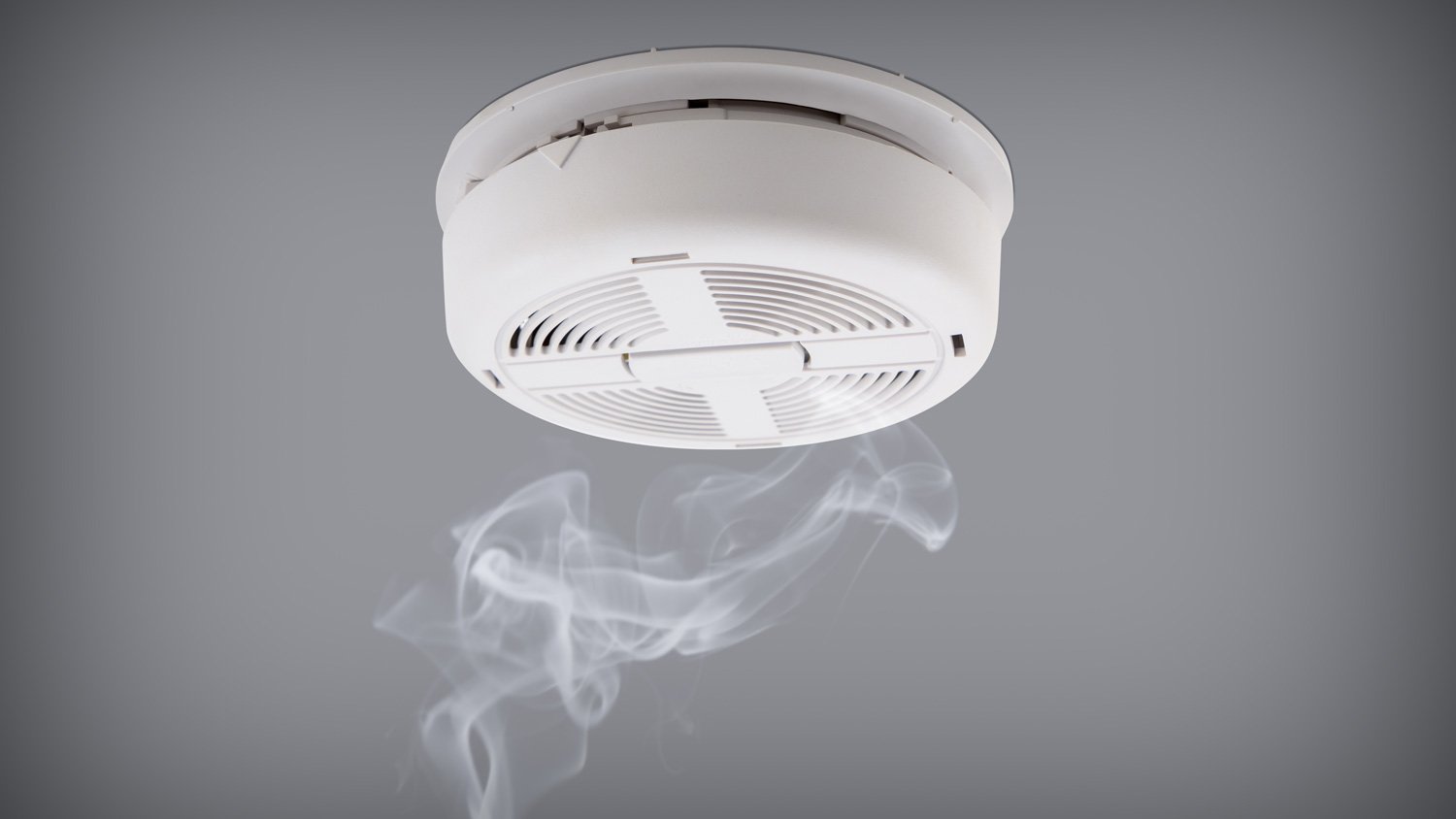
Ionization smoke detectors are best at detecting flaming fires. They use a small amount of radioactive material to ionize the air, causing air molecules to line up between two charged plates. When smoke disturbs these lines of ions, it breaks the path of electricity and triggers the alarm.
This type of smoke detector is better at detecting flaming fires than smoldering fires, but by the time flames develop, there will be more smoke, and you may have less time to get out of the home safely. They’re wallet-friendly, with some starting as low as $7. If you need assistance choosing a smoke detector, a licensed electrician may be knowledgeable about the required or recommended units in your area.
| Pros | Cons |
|---|---|
| Better at detecting flaming fires | May not detect smoldering fires |
| Affordable | Can be triggered by smoke from cooking |
Best for: Detecting flaming fires
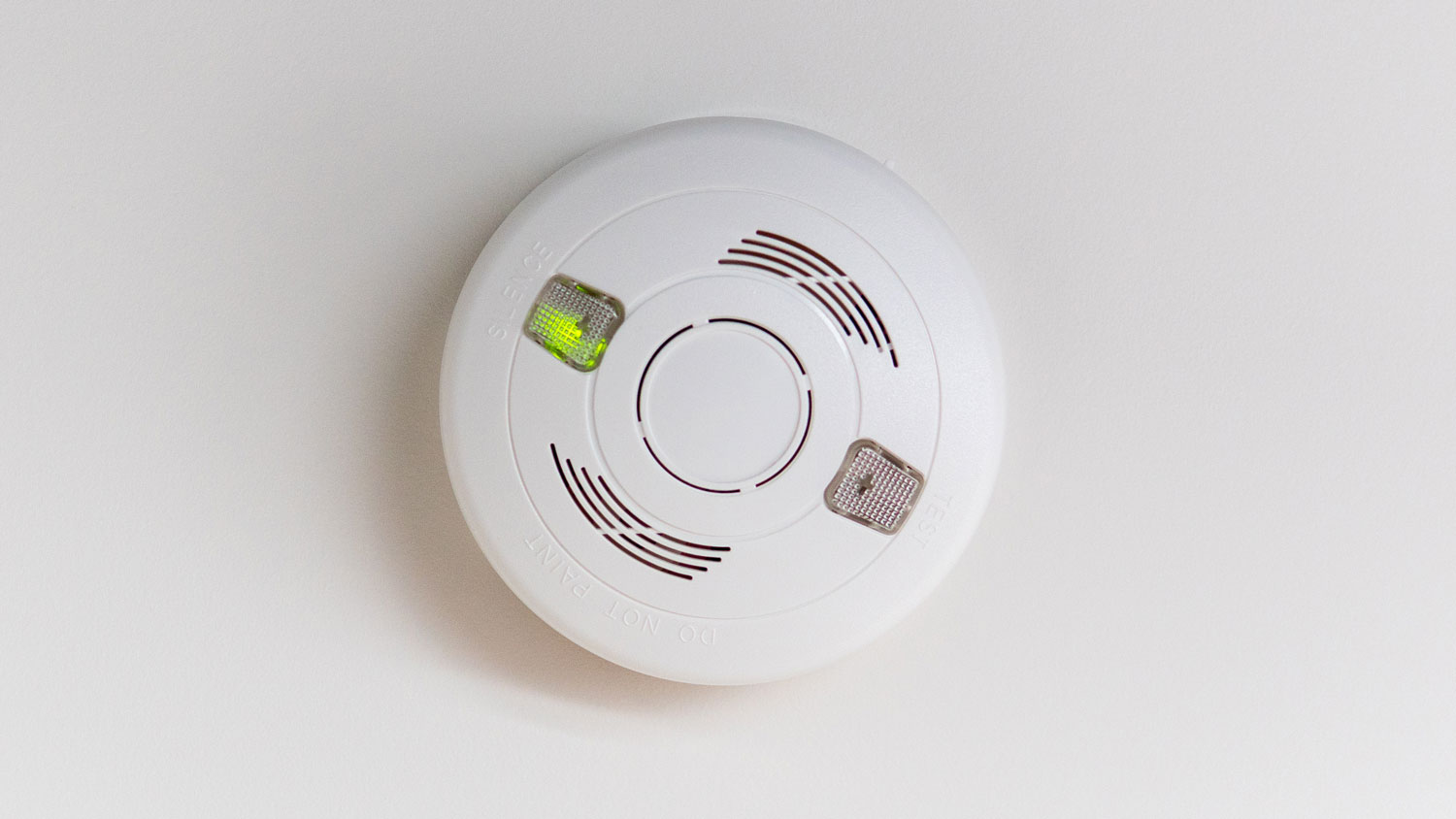
Dual-sensor smoke detectors that use both ionization and photoelectric alarms are ideal for your home and give you the best protection regardless of which type of house fire starts. While this type of smoke detector is more expensive than a photoelectric or ionization version, it’s still relatively affordable, averaging between $30 and $50 per unit. However, this can add up if you need to buy multiple units for a large home.
| Pros | Cons |
|---|---|
| Detects both flaming and smoldering fires | More expensive than ionization or photoelectric alarms |
| Can be hardwired or battery-operated |
Best for: More comprehensive protection
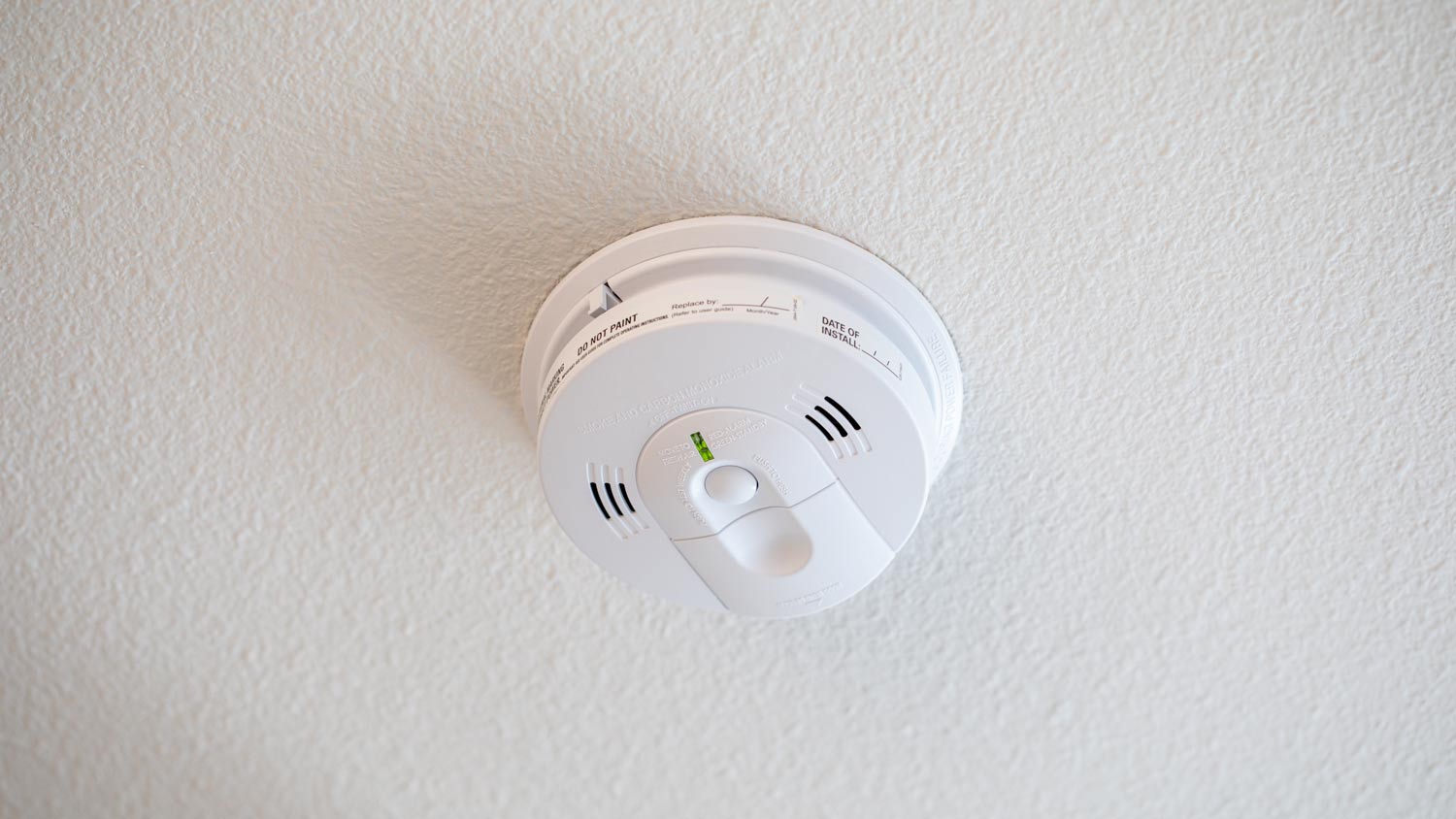
To create a safe home, you don’t have to wonder if you should install carbon monoxide (CO) detectors or smoke detectors—you can install combination units. Carbon monoxide in the home may be the result of a leaking chimney or furnace, gas stoves, or exhaust from a vehicle in an attached garage. If CO builds up, it can result in fatigue, chest pain, headaches, dizziness, and confusion, among other symptoms.
Carbon monoxide is odorless and colorless and can be an extremely dangerous gas in high concentrations. Installing a combination smoke and detector can alert you to high CO levels or a fire in your home. They cost about $35 to $55 per unit, and you can talk with your local fire department or Red Cross to determine the best placement in your home.
| Pros | Cons |
|---|---|
| Detects smoke and carbon monoxide | Cost more than a standalone smoke alarm or carbon monoxide detector |
| Can be more affordable than buying each separately | Can be challenging to decide where to place each unit |
| Fewer units are needed around the home |
Best for: Protection against carbon monoxide as well as fires

Battery-operated smoke detectors are budget-friendly and easy to install anywhere you need them, including bedrooms, outside sleeping areas, living areas, basements, and nearby kitchens. Test the batteries every month to ensure they still work.
Battery-operated smoke detectors also come in 10-year sealed battery versions. You won’t have to change the batteries as you’ll need to throw them away after 10 years.
| Pros | Cons |
|---|---|
| Easy to install and place throughout the home | Batteries will need to be replaced according to the manufacturer’s specifications |
| 10-year sealed battery versions available | You’ll need to test the batteries regularly and change them as needed |
| Affordable |
Best for: Quick installation anywhere you need a smoke alarm
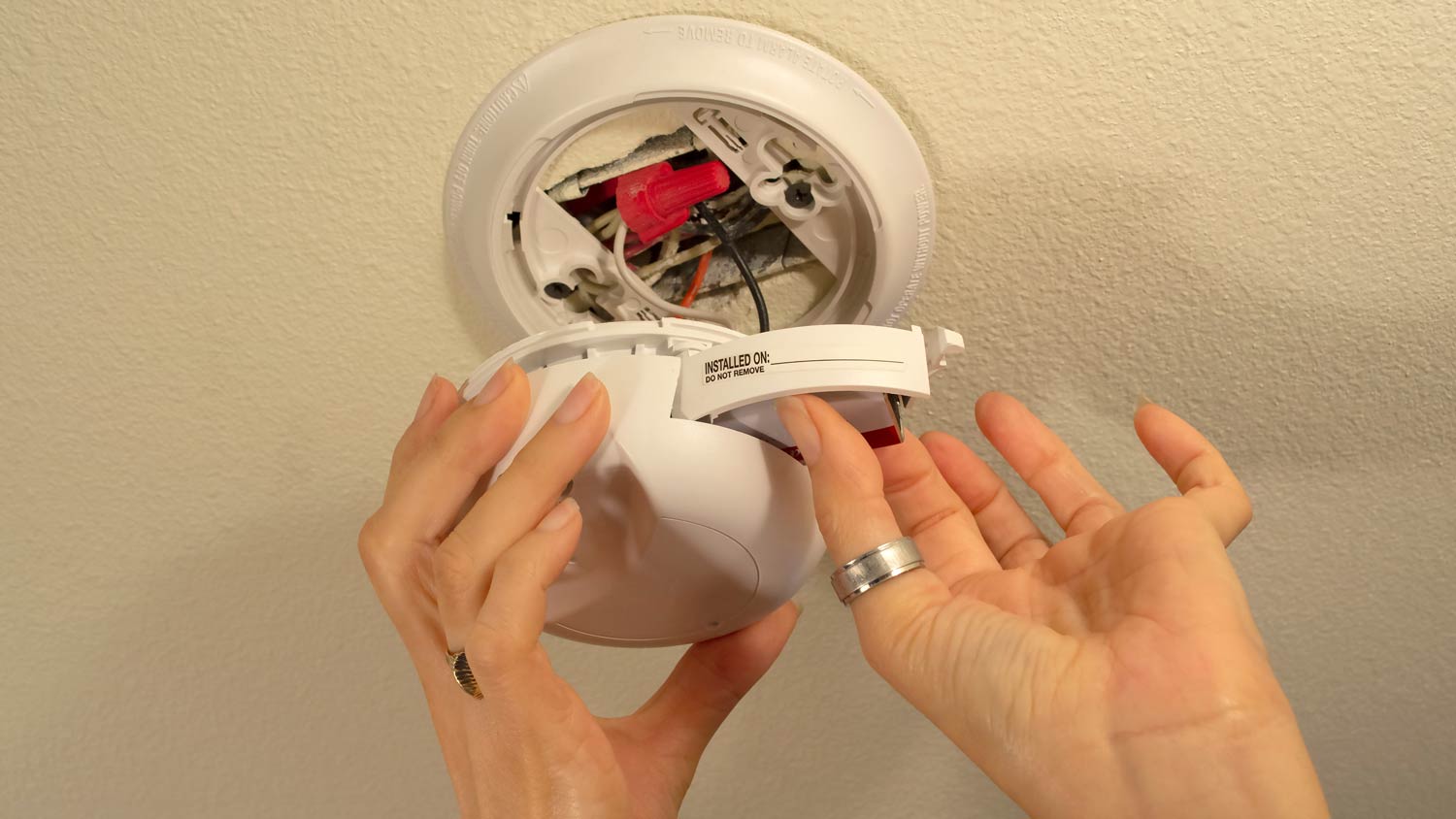
Hardwired smoke detectors are connected to the wiring and draw power from the home’s electricity. They can also come with a battery backup so they can function during a power outage. Hardwiring is one way to create an interconnected smoke detector system, so when one alarm is triggered, all alarms sound. Call a qualified electrician who installs smoke detectors if yours needs to be hardwired.
Many state and local building codes require hardwired, interconnected smoke detectors in new construction and 10-year sealed battery versions in existing construction. To determine the building code regulations in your state, look up your city’s building code, talk to a licensed electrician near you, or call your local fire station.
| Pros | Cons |
|---|---|
| You don’t have to change the batteries | Should be installed by a licensed electrician |
| Can use a battery as a backup power source | Likely not installed if your home was built prior to 1980 |
| May already be installed in your home | Won’t work during a power outage unless it has a battery backup |
Best for: Creating an interconnected system in new homes without relying on batteries
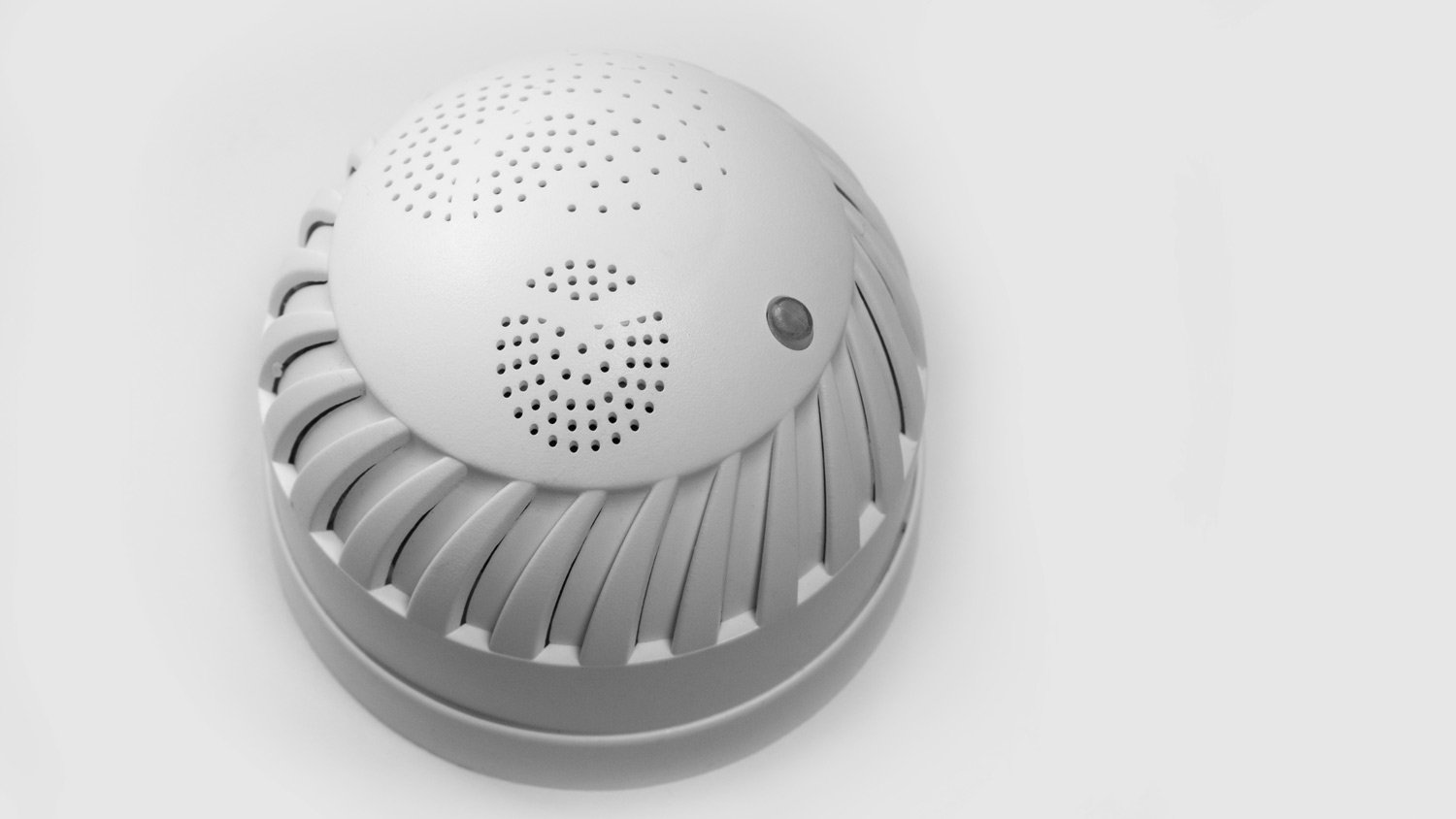
You can buy smart smoke and carbon monoxide detectors that integrate into a smart home or security system. These types of smoke detectors are more expensive than standard stand-alone detectors, but they can alert you or your home security service to the presence of a fire.
If you don’t want to integrate these with a smart system, choose a smart smoke alarm that connects to a smartphone app. Smart smoke detectors range in price from $35 to $150.
| Pros | Cons |
|---|---|
| Can alert to a fire when you’re not home | More expensive than standard smoke alarms |
| Can alert the security system monitoring company | Requires an app or base station |
| When one alarm is triggered, all alarms sound | Some need to be hardwired |
Best for: Remote notification and interconnected alarm system
Choosing the right smoke detector depends on your budget, goals, and local building codes. According to the Federal Emergency Management Agency (FEMA), the best practice is to install smoke alarms on every level of the home, inside each bedroom, and outside each sleeping area.
While all homes must have smoke detectors, the type required can vary from state to state and city to city. To start, you can call your local fire department or a local electrician for more information. Other considerations include:
How often you want to test the smoke detector and change the batteries
Whether or not you want to control the detectors with an app
If you want or are required to have an interconnected system
If you have hardwired, interconnected smart smoke detectors that work with an app or home security system, they can alert you to a fire even if you’re not home. If they’re connected to a monitored home security system, the company can call the fire department for you when the alarm is triggered. If you live in an older house or prefer not to use a smart system, you can install battery-powered smoke detectors throughout your home.
From average costs to expert advice, get all the answers you need to get your job done.

How much does it cost to install a doorbell camera? It depends on whether you plan to DIY or hire a pro. Learn about different models and their power sources, too.

Feeling safe at home should always be a priority, and installing a new security system can help you do just that—no matter where you live.

A security camera system gives you peace of mind that there’s always a watchful eye on your home. Learn the costs of installing surveillance cameras.
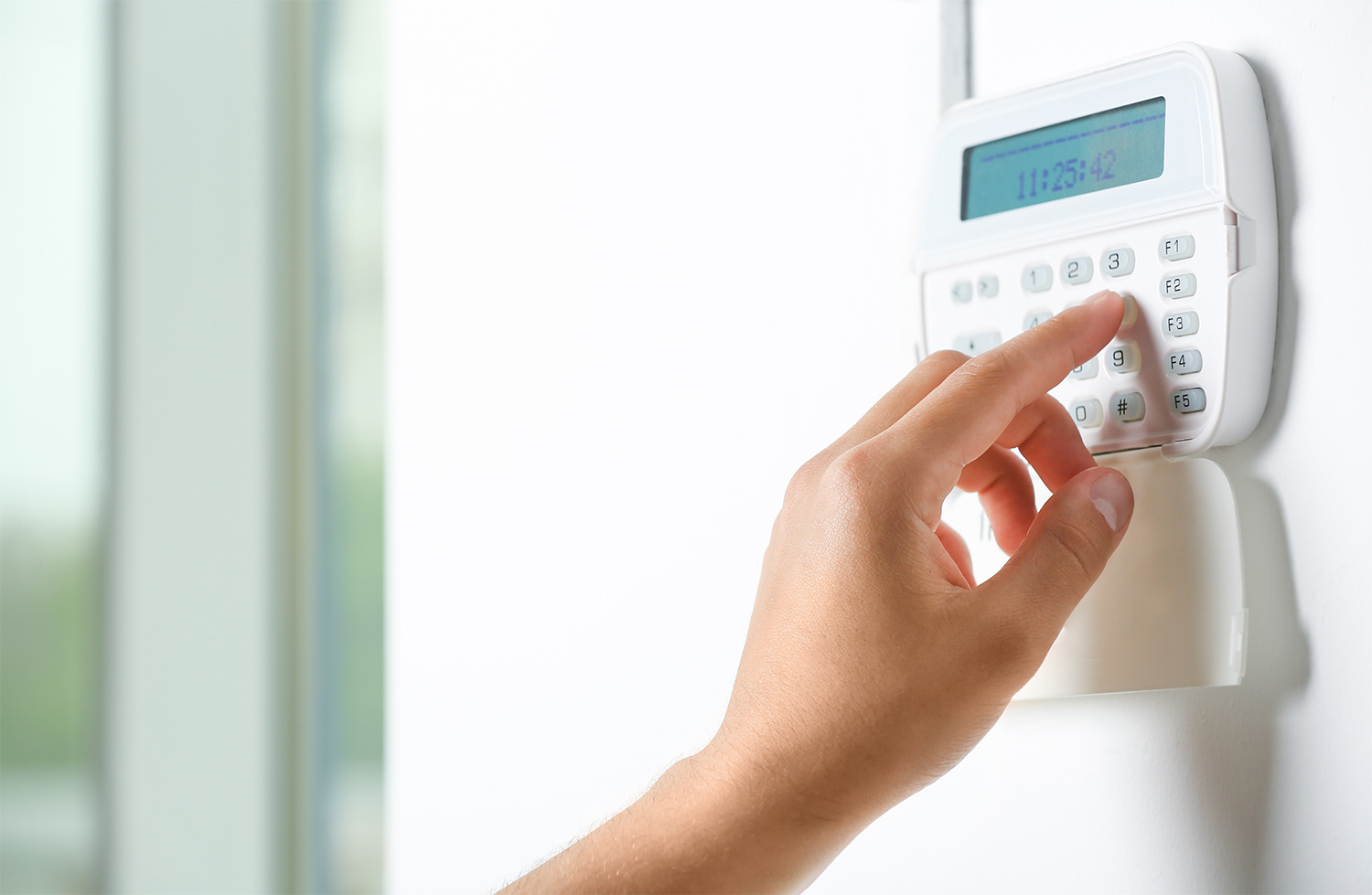
Wondering who to hire to repair your home security system? Learn whether to call an alarm company or an electrician, and see how pros fix security systems.

There are many types of window alarm sensors. Find out which is right for you in our easy-to-read guide.

To keep your property and loved ones safe, you might consider a security door for exterior entry points. Learn how to install a security door yourself.